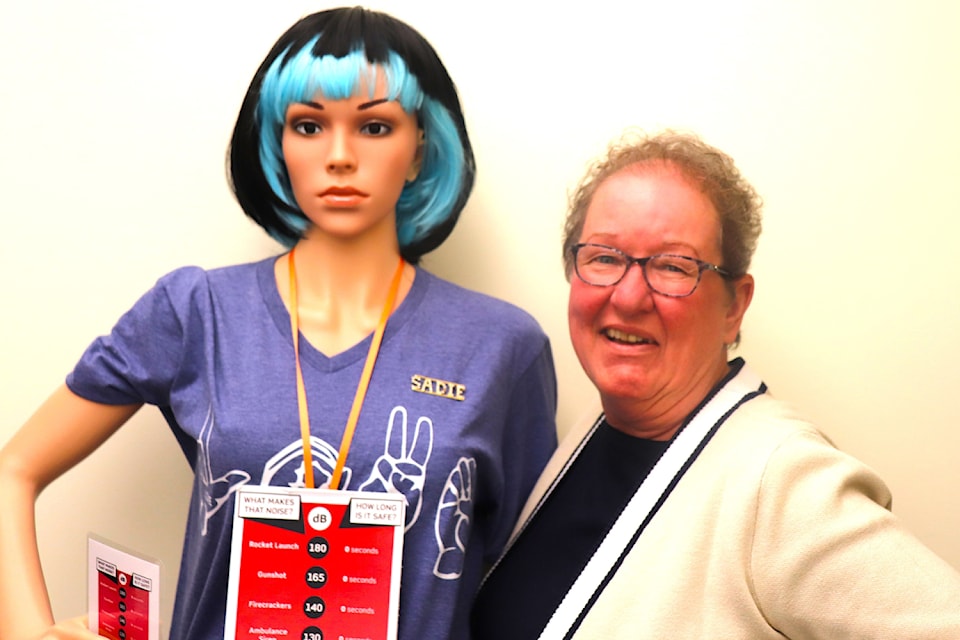Health
Victoria Centre Empowers Those Facing Hearing Loss Challenges

A non-profit organization in Victoria, the **Island Deaf and Hard of Hearing Centre (IDHHC)**, is making significant strides in helping individuals overcome the challenges associated with hearing loss. With approximately one-third of older adults experiencing some form of hearing impairment, this initiative addresses a growing concern. According to **Stats Canada**, about **60 percent** of Canadians aged **19 to 79** face hearing health issues, which can lead to profound changes in daily life.
As hearing loss progresses, individuals and their partners often adopt strategies to cope, such as speaking louder or avoiding conversations altogether. This gradual decline can result in years passing before help is sought. **Denise Robertson**, executive director of IDHHC, shares her personal experience with her father, who suffered from hearing loss. “It was devastating to me that he couldn’t participate with his family,” she reflected. Robertson’s journey from a banking and recreation career to the IDHHC stemmed from her desire to assist others facing similar challenges.
Understanding the cognitive impact of hearing loss is crucial. Hearing is essential for brain stimulation; every sound engages specific areas of the brain, keeping it sharp and active. When hearing diminishes, the lack of stimulation can lead to cognitive decline, affecting memory, comprehension, and language processing. The emotional toll is equally significant, often resulting in social withdrawal, decreased self-confidence, and mental health struggles. As Robertson noted, “The resulting social distancing can impact people and result in depression, loneliness, withdrawal, anxiety… it can leave them feeling empty.”
Misconceptions about hearing loss abound, particularly among older adults. Robertson emphasizes that while hearing aids can be transformative, they do not restore “normal hearing.” People may still struggle to understand conversations. Furthermore, she stresses the importance of respectful communication, stating, “You don’t get to decide for a hearing-impaired person what is important.”
The IDHHC offers a range of services aimed at dispelling myths surrounding hearing loss. Established in **1991** by parents seeking support for their deaf children, the organization has since expanded its mission. **Kristi Falconer**, the IDHHC manager of communication, highlights the impact of their **Sound of Change** program, which provides free hearing assessments and refurbished hearing aids to vulnerable populations. Over the past seven years, this initiative has benefited more than **2,500 individuals**, providing assistance valued at over **$8 million**.
In addition to the Sound of Change program, the IDHHC offers comprehensive services across Vancouver Island and the Gulf Islands. Their full-service hearing health clinics, staffed by registered audiologists, provide employment support, American Sign Language (ASL) interpreting, and assistive technology demonstrations. While the organization sells hearing aids to those who can afford them, Robertson notes that they are not tied to any specific manufacturer, allowing them to offer tailored solutions to clients. “All our profits go back to provide services, hearing aids, and programs to those who may not be able to afford them,” she said.
For further information about hearing impairment or the services provided by IDHHC, visit their website at www.idhhc.ca/.
-

 Politics4 weeks ago
Politics4 weeks agoSecwepemc First Nation Seeks Aboriginal Title Over Kamloops Area
-

 World5 months ago
World5 months agoScientists Unearth Ancient Antarctic Ice to Unlock Climate Secrets
-

 Entertainment5 months ago
Entertainment5 months agoTrump and McCormick to Announce $70 Billion Energy Investments
-

 Science5 months ago
Science5 months agoFour Astronauts Return to Earth After International Space Station Mission
-

 Lifestyle5 months ago
Lifestyle5 months agoTransLink Launches Food Truck Program to Boost Revenue in Vancouver
-

 Technology3 months ago
Technology3 months agoApple Notes Enhances Functionality with Markdown Support in macOS 26
-

 Lifestyle3 months ago
Lifestyle3 months agoManitoba’s Burger Champion Shines Again Amid Dining Innovations
-

 Top Stories2 months ago
Top Stories2 months agoUrgent Update: Fatal Crash on Highway 99 Claims Life of Pitt Meadows Man
-

 Politics4 months ago
Politics4 months agoUkrainian Tennis Star Elina Svitolina Faces Death Threats Online
-

 Sports5 months ago
Sports5 months agoSearch Underway for Missing Hunter Amid Hokkaido Bear Emergency
-

 Politics5 months ago
Politics5 months agoCarney Engages First Nations Leaders at Development Law Summit
-

 Technology5 months ago
Technology5 months agoFrosthaven Launches Early Access on July 31, 2025








